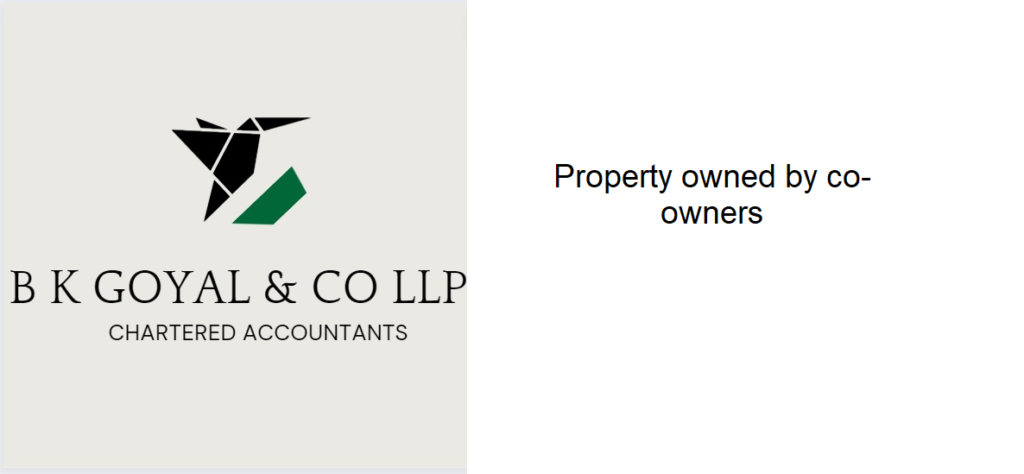When multiple individuals jointly own a property, it is known as co-ownership. In India, the rules regarding such ownership are outlined in Section 26 of the Income Tax Act, which describes the tax implications of owning a property jointly.
Section 26 applies to cases where a property is owned by two or more individuals who are not part of a Hindu Undivided Family (HUF). In such cases, the income generated from the property is taxed based on each co-owner’s share in the property.
For instance, if Mr. A and Mr. B jointly own a property with a 50% share each and the property generates rental income of Rs. 1,00,000 per year, then each co-owner will be taxed on Rs. 50,000, which represents their share of the income.
It is important to note that when co-owners are married couples, the income from the property is typically assumed to be equally shared between them, regardless of their actual share in the property.
In summary, co-ownership of a property has a significant impact on tax liabilities. As such, it is advisable to seek advice from a tax expert or a chartered accountant to comprehend the implications of co-ownership on tax obligations.
section 26 of Income Tax Act, 1961
Where property consisting of buildings or buildings and lands appurtenant thereto is owned by two or more persons and their respective shares are definite and ascertainable, such persons shall not in respect of such property be assessed as an association of persons, but the share of each such person in the income from the property as computed in accordance with sections 22 to 25 shall be included in his total income.
Explanation.—For the purposes of this section, in applying the provisions of sub-section (2) of section 23 for computing the share of each such person as is referred to in this section, such share shall be computed, as if each such person is individually entitled to the relief provided in that sub-section.
Services of B K Goyal & Co LLP
Income Tax Return Filing | Income Tax Appeal | Income Tax Notice | GST Registration | GST Return Filing | FSSAI Registration | Company Registration | Company Audit | Company Annual Compliance | Income Tax Audit | Nidhi Company Registration| LLP Registration | Accounting in India | NGO Registration | NGO Audit | ESG | BRSR | Private Security Agency | Udyam Registration | Trademark Registration | Copyright Registration | Patent Registration | Import Export Code | Forensic Accounting and Fraud Detection | Section 8 Company | Foreign Company | 80G and 12A Certificate | FCRA Registration |DGGI Cases | Scrutiny Cases | Income Escapement Cases | Search & Seizure | CIT Appeal | ITAT Appeal | Auditors | Internal Audit | Financial Audit | Process Audit | IEC Code | CA Certification | Income Tax Penalty Notice u/s 271(1)(c) | Income Tax Notice u/s 142(1) | Income Tax Notice u/s 144 |Income Tax Notice u/s 148 | Income Tax Demand Notice
